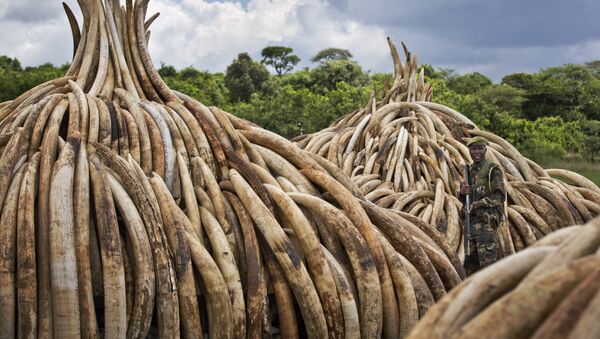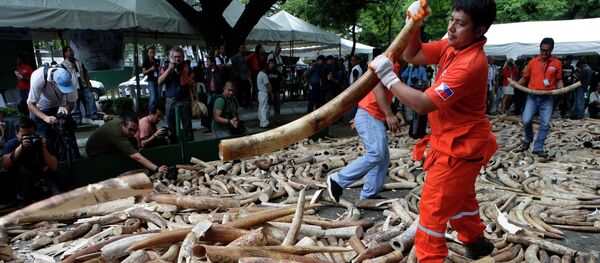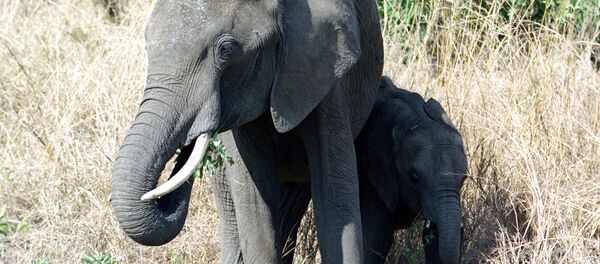+++VIDEO+++
— DW - Business (@dw_business) April 29, 2016
Kenya will burn more than 100 metric tons of #ivory, more than ever. Will this help end poaching?https://t.co/0fIMAFicSt
Some 105 tons of elephant tusks and 1.35 tons rhinoceros horns, as well as exotic animal skins and many other wildlife products will be set ablaze on Saturday, the African country’s officials announced. The destruction of the ivory, said to be worth some $172 million on the black market, is aimed to tackle widespread illegal trade of the material.
“From a Kenyan perspective, we’re not watching any money go up in smoke,” Kenya Wildlife Service Director General Kitili Mbathi told CNN. “The only value of the ivory is tusks on a live elephant.”
Addressing this problem at a summit of African leaders, Kenyan President Uhuru Kenyatta called for an end to poaching, referring to it as a death sentence for endangered species.
“The future of the African elephant and rhino is far from secure, so long as demand for their products continues to exist," the president said, adding that the illegal ivory trade “fuels corruption” and hampers the economic development of Africa.
But the mass slaughter of rare animals is setting new records. The number of rhinos killed in Africa has been rising for six years, and in 2015 reached 1,338. Over 100,000 African elephants were killed between 2010-2012, scientists from Colorado State University assessed.
"Very possibly by 2025, these magnificent creatures will be completely extinct," Evgeny Lebedev, UK-based journalist and charity campaigner told BBC.






